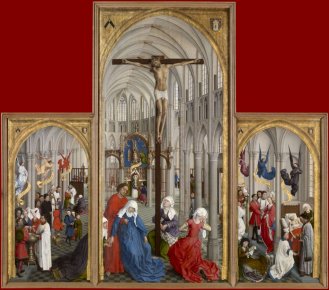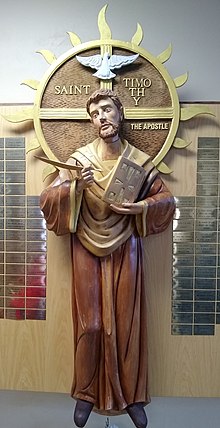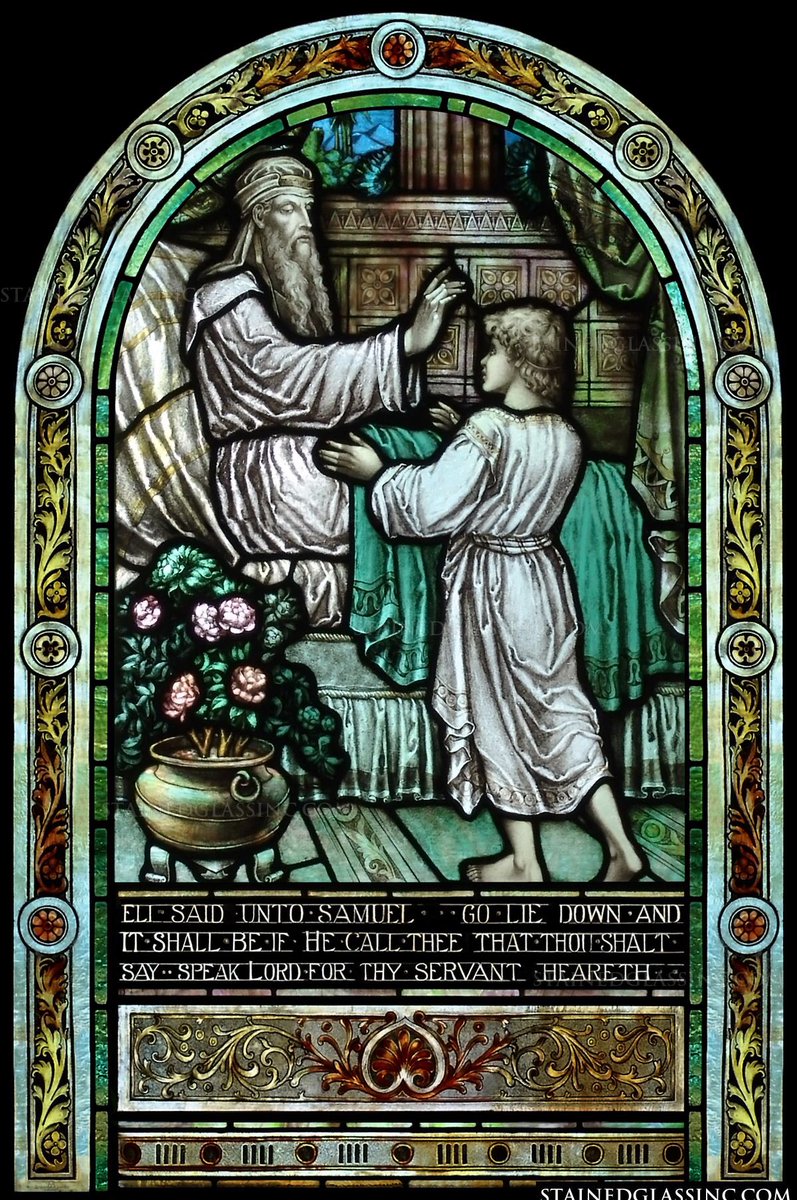Sermon for the Second Sunday after Epiphany B, on Sunday, January 17, 2021, by the Rev. Daniel M. Ulrich. It’s our habit as modern people to question simple things. Our world has gotten so complex that we overlook simple things, we don’t think too much about them. Simple things are unremarkable. Instead, we want and trust in elaborate and sophisticated things. It’s the amazing and even the miraculous that we want. Simple just doesn’t cut it, and yet, there’s that old saying: Keep It Simple Stupid. We question the simple, but it’s exactly through the simple Word of God that He reveals Himself to you and gives you salvation.
The Lord always revealed Himself through His Word, His Word spoken and written. We see this in the call of Samuel. Young Samuel, lying in bed, heard the voice of God calling to him. Hearing his name from a distant voice, he got up and ran to the priest Eli, thinking he was the one calling. Even in the middle of the night, Samuel was ready to serve when called.
Finally, Eli figured out what was going on. He realized it was the voice of God that Samuel heard, and he told him what to do. And just as Samuel was willing to serve Eli at all times, he was willing to serve the Lord. Hearing God call again, Samuel said, “Speak, LORD, your servant hears” (1 Sam 3:10).
At that time, Scripture says Samuel didn’t know the Lord, that is, he didn’t know the Lord’s voice. He never heard God audibly speak to him before. But Samuel surely knew God. He knew Him by faith. Serving in the temple, he heard the words of Scripture. Through simple words written and proclaimed by Eli and other teachers, Samuel knew God, even before he heard God’s voice. Through simple words written in Scripture, Samuel was given faith...and so are you. You know the Lord because He’s revealed Himself to you in His Word written by the prophets and evangelists.
We live in a similar time as young Samuel. The Bible says that at that time the word of the LORD was rare; that there was no vision. God wasn’t directly revealing Himself and His Word to any prophet. And that’s how it is today, and it will continue to be until Christ comes again.
Ever since Christ, there’s been no prophet like the prophets of old. The writer of Hebrews says, “In many and various ways God spoke to His people of old by the prophets, but now in these last days, He has spoken to us by His Son” (Heb 1:1-2). The time of direct revelation is over. Now we know the Lord through the Word of Scripture. But many of us still desire to have the miracle experience of direct revelation.
We want to audibly hear the voice of God. We want to feel Him talking to us in our hearts. We want this because we think our belief will be stronger because of that experience, that we can know for sure that God’s there, caring for us, loving us. We want this because we’re sinners that don’t trust the simple Word of God, just as Nathanael didn’t trust the simple.
After John the Baptist pointed to Christ and said, “Behold, the Lamb of God who takes away the sin of the world” (Jn 1:29), and after Jesus had called Andrew and Peter to be His disciples, He went to Galilee and told Philip to follow Him. Hearing Jesus’ simple words, Philip followed, and then he went and told his brother, Nathanael. He said, “We have found him of whom Moses in the Law and also the prophets wrote, Jesus of Nazareth, the son of Joseph” (Jn 1:45). But instead of hearing that the Messiah had come, Nathanael only heard the Nazareth. “Can anything good come out of Nazareth?” (Jn 1:46). Can anything good come from a small, insignificant town nowhere mentioned in the Scriptures? Can anything good come from a place that’s simply a wide spot in the road? Nathanael doubted the Good News his brother shared because Nazareth was so simple and unremarkable.
But, giving in, Nathanael followed, and as he was approaching Jesus, Christ identified him, “Behold, an Israelite indeed, in whom there is no deceit” (Jn 1:47). Nathanael was taken aback. How did Jesus know him? And then Christ revealed who He was in a miraculous way, “Before Philip called you, when you were under the fig tree, I saw you” (Jn 1:48). Jesus displayed His omniscience. He revealed something that only Nathanael would know, and hearing this, Nathanael believed. He confessed Jesus to be the Son of God, the King of Israel.
Nathanael wanted the remarkable. The simplicity of Nazareth was a stumbling block for him, just as the simplicity of God’s written and preached Word can be a stumbling block for us. We want to see the miraculous. And yet, the miracle Christ performed for Nathanael was nothing compared to what he would see. He would see all the prophecies of old fulfilled, the Son of God walking among His people. He would see salvation won in an unlikely way with Jesus’ death on the cross. He would see the risen Lord ascend into heaven. And he would see thousands upon thousands of people come to faith through the simple Word of Christ proclaimed.
Nathanael relied on the miracle, but Jesus was revealed long before that through the simple words of Scripture. Philip said they’d found the Christ that Moses and the prophets wrote about. And Jesus, after His resurrection showed His disciples that truth. It’s all there, in black and white. It’s all there in the simple Words of Scripture: Christ revealed, His saving work revealed. It’s all revealed and given to you.
We may not think too much about God’s Word written and proclaimed. We might think too much about the simplicity of water and bread and wine. These simple things don’t impress us. We want to hear and see greater things. We want to audibly hear the voice of God like Samuel did. We want to witness miracles like Nathanael did. But in the simple Word we hear and see greater things. We see new life given in the waters of baptism. We see sins removed by the word of God’s forgiveness. We see our Savior among us as He feeding us His body and blood. We may not think too much about these simple things, but it’s exactly through the simple Word of our Lord that we receive the not so simple: forgiveness, life, and salvation. So hear the simple Word of God, and with faith, respond like Nathanael, “Rabbi, You are the Son of God, the King of Israel,” respond like Samuel, “Speak, Lord, your servant listens.” Hear the Word, know your Savior, and have everlasting life in Him. In Jesus’ name...Amen.

















